Welcome to the 47th issue of the newsletter. If you want to help us tap into the tribe of curious people, do send this to the friends who will enjoy this weekly reading material. Just click the subscribe now icon below. Thanks in advance.
This week I focus on a book I read Entrepreneurial You by Dorie Clark. I am finishing another fabulous book about Magic… more of that next week. But before that lets talk about sense and essence.
1. Sense and essence
I got two mails this week asking me two questions.
Why do I curate this newsletter?
Would I keep this newsletter free always or will it have a paywall?
It is all about sense and essence.
Why do I curate this newsletter?
Think of me as a friend whose recommendations and sketches and pictures makes the information visually rich. A food blogger’s recommendations on a restaurant help you discover a hidden treasure. Or know the history of the menu or the quirkiness of the family that runs it. The experience of food happens when the information, the trivia and human story gets added to the experience of eating something. I enjoy sharing my world with you.
Talking of food, did you know that Indian food is based on six kinds of tastes (rasas)- Sweet (madhura), Salty (lavana), Sour (amala), Pungent (katu), Bitter (tikta) and Astringent (kasya). The word Rasa (the ‘a’ at the end is silent in all the italicised words) means juice, essence or taste.
Photo: Cafe in Jerusalem
The person who enjoys the essence or rasa is called a rasika (trans: connoisseur). In the Indian performing arts, a rasa is a sentiment or emotion evoked in each member of the audience by the art. The performance must build an emotional bond with the rasika.
I hope the newsletter caters to the rasika in you. After all it is not just about sense but also the essence of it all.
Should I ask the readers to pay for it?
I remember visiting a restaurant in New Jersey where the menu only listed the items but had no prices mentioned. People paid whatever they felt was a fair price for the food and the service. That model appealed to me.
Maybe I should. But I don’t like the idea of putting content (fully or partly) behind a paywall. I think the readers should decide the value they get and if they would pay for it. Think of it like a coffee and sandwich we share every Monday and you pay for it sometimes. Would that work? Let me know what you think.
PS: If you want to email me your response, write to abhijitbhaduri@live.com
2. SHRM India’s Talent 2021 Conference
The New Workplace
The pandemic turned the workplace on its head. HR was expected to pitch in and help in business continuity. The employees had to be kept safe. Managers depended on HR for issues around compliance, toolkits, playbooks, new policies and legal advice (would domestic violence or an accident count as violence/ injury in the workplace?).
Divisive and sensitive issues
Leaders can no longer say that the employees discuss what strictly appears to be part of the job. That is a thing of the past. CEOs have to take a position on issues that were considered beyond the firm’s purview eg LGBTQ rights or race relations. So the leaders have to build an environment where it is possible to discuss issues openly. If you cannot talk about it openly and candidly, you cannot fix it.
Not everything has changed. The science of talent management remains unchanged. Read more about the two keynotes of the two days <Read more>
Marc Effron is a person who believes that the science of Talent Management remains unchanged. He did the opening keynote on the second day of the SHRM conference. I did a keynote of the key ideas that Marc spoke about.
How many goals should you have for a year? Does it matter if the manager sets the goal or if the person does it himself or herself? Wait, before you say you know the answer to that question, read the post. Your belief may actually be wrong according to the science of talent management. Read this
3. Does your job make you feel de-energised?
Jobs take up so much of our lives. Yet every Monday you can hear the RJs telling people how to deal with #MondayBlues. Most people work in jobs that sap energy.
It does not have to be that way. As someone who has observed career transitions very closely, I am always surprised how people do not take charge of changing the configuration that their job offers. The tasks and relationships of your job can all have different time allocations. That in turn can change the meaning of your job.
Choose “to do fewer, more, or different tasks than prescribed in the formal job.” Changing the quality and amount of interaction with your colleagues can bring a renewed sense of belonging and purpose.
Here is how you can change three elements of your job.
The nature of the attention defines the nature of our experience says Rory Sutherland in his book Alchemy. That is my next recommendation.
4. Book Recommendation
Entrepreneurial You by Dorie Clark
The average person holds approximately eleven jobs in their lifetime. That number is only increasing.
There was a time when people would say, “If you are not a risk taker then take up a steady job and stick to it.” Today I would say, “Think of your career like a portfolio of income streams.” Think of this as Career3.0 <Read about it>
A portfolio of income streams
The first element of that is to ask yourself what do people come to you for? Are you good at organising parties? Are you good at simplifying algebra? Can you draw out the periodic table and make people fall in love with Chemistry?
Dorie Clark did this terrific video that you should watch before you read the book Entrepreneurial You.
5. Yeh dil Mango more
OK that was a horrible pun on the Pepsi ad that said, “Yeh Dil Maange More” (I want more, so says my heart).
We started this issue of the newsletter with references to food. This is the mango season in India. We are spoilt for choice given the 1500 varieties of mango that grow in India. The Mumbai Indian will vouch for Alfonso (Hapus) as the only mango that matters. There are those who swear by the variety called langda (Read: why is it called langda?)
Founding Fuel has a newsletter that had this little nugget on how to choose a mango and many other tips. I thought you may find the tips useful
I wanted to share this painting with you. Like it? Let me know…
That’s all for this week. This week, pay attention to the sounds around you. They say, it is all about 20,000 hertz. I will write about 20,000 hertz in next week’s newsletter. Meanwhile that is a cryptic clue you can figure out. If you figured it out, leave a comment.
Tap the heart icon below if you liked this week’s newsletter.
Stay curious
Abhijit Bhaduri


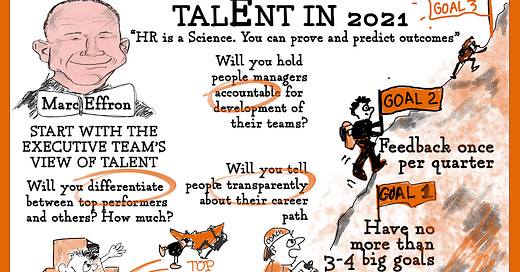



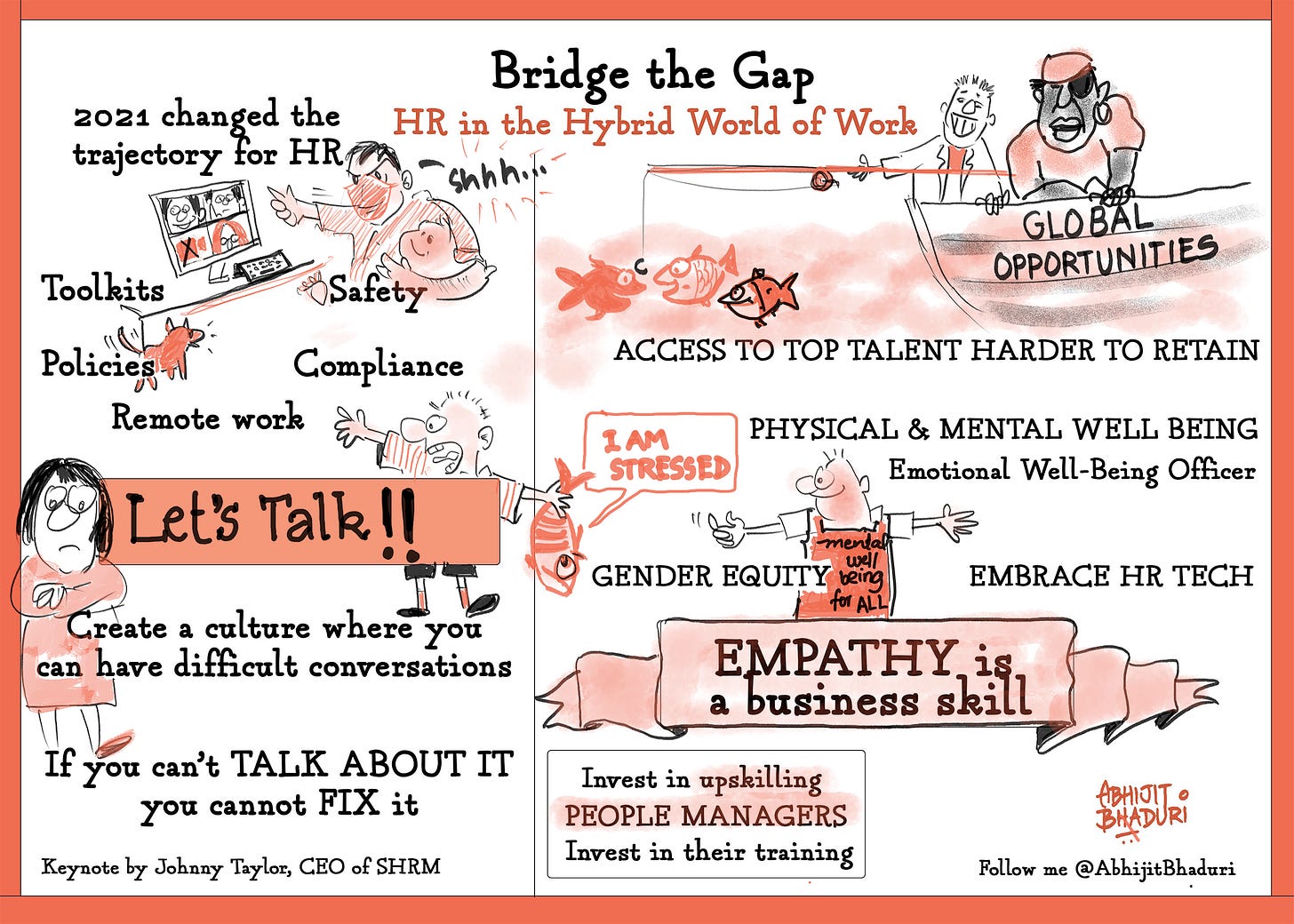

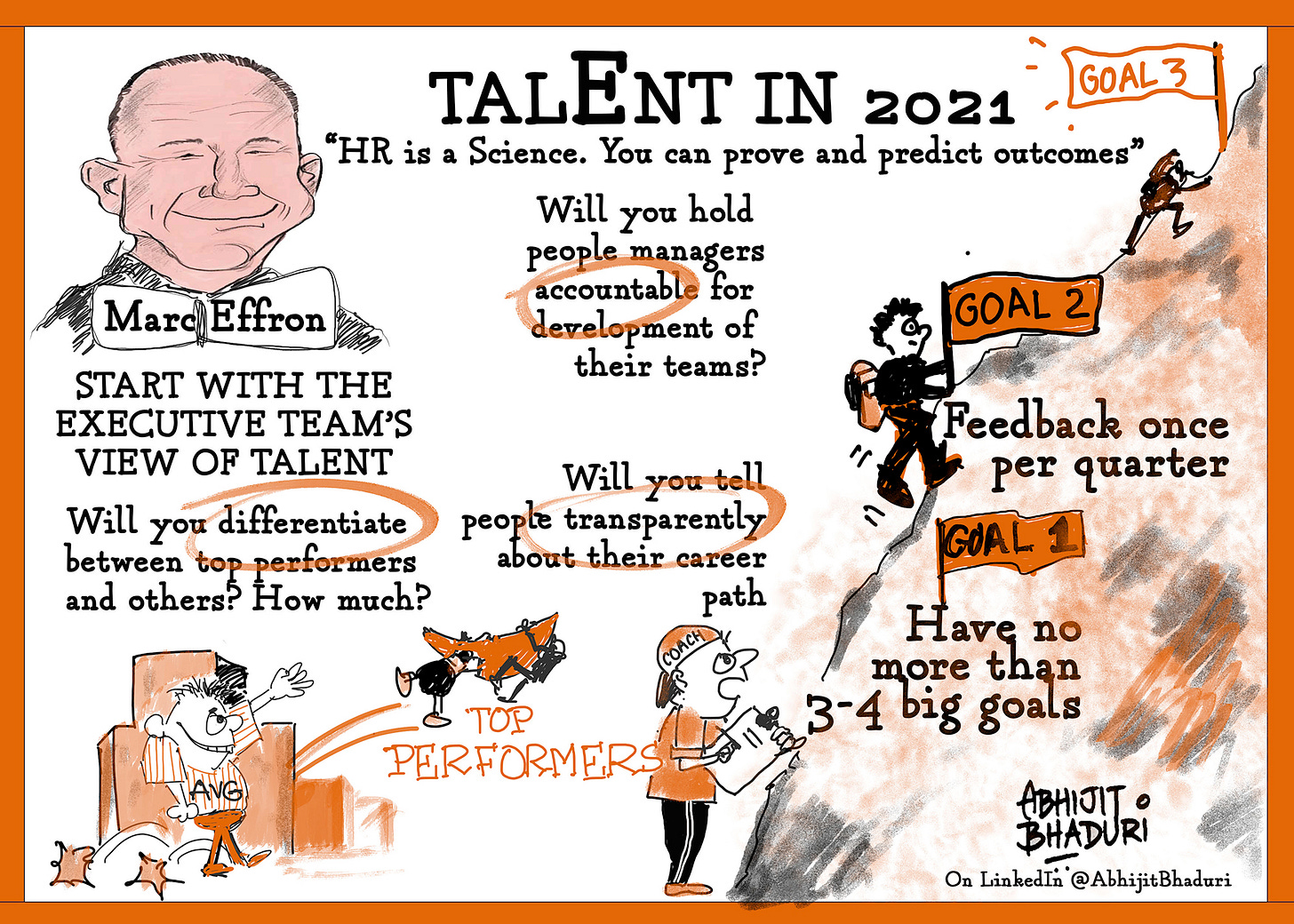
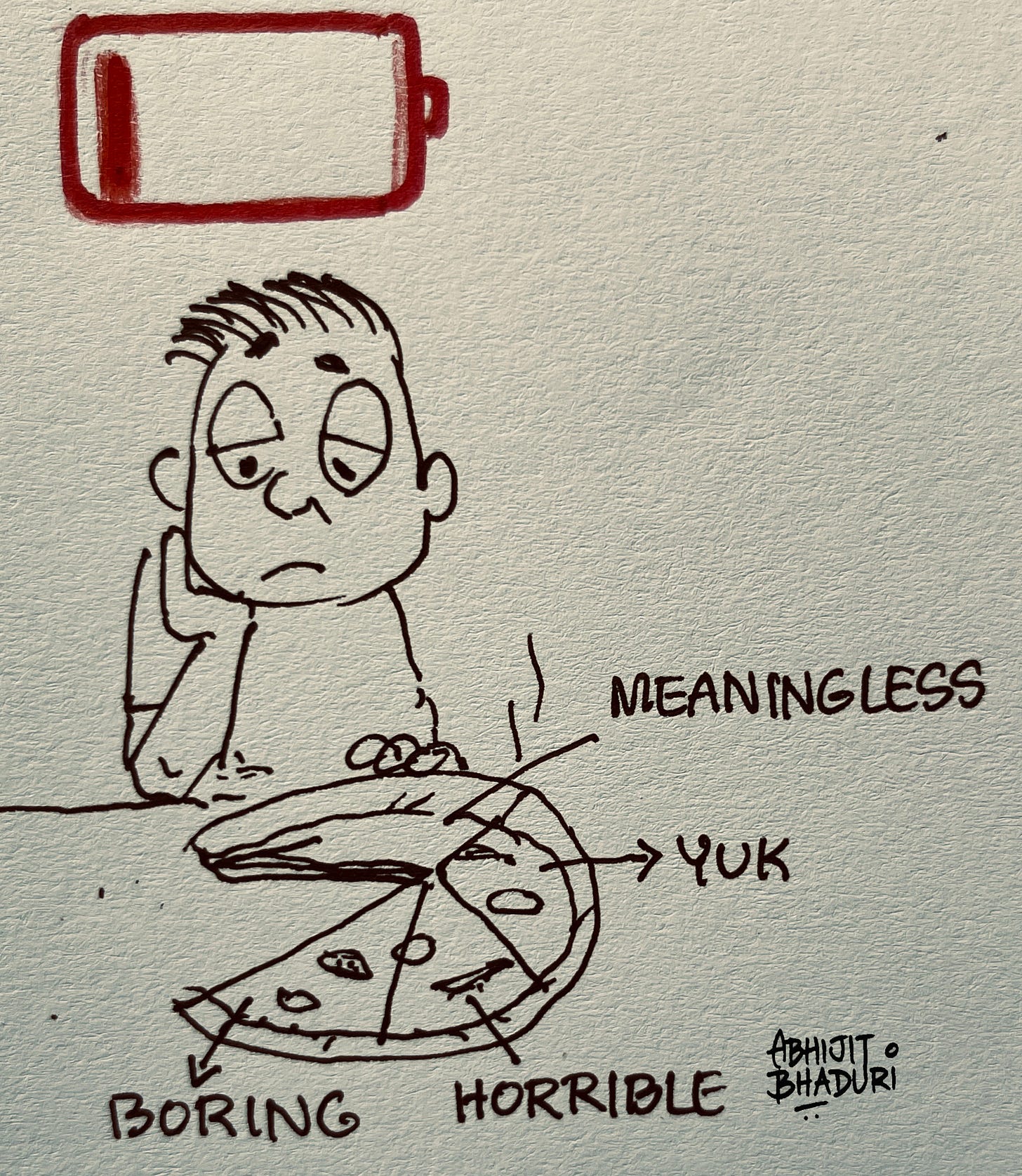

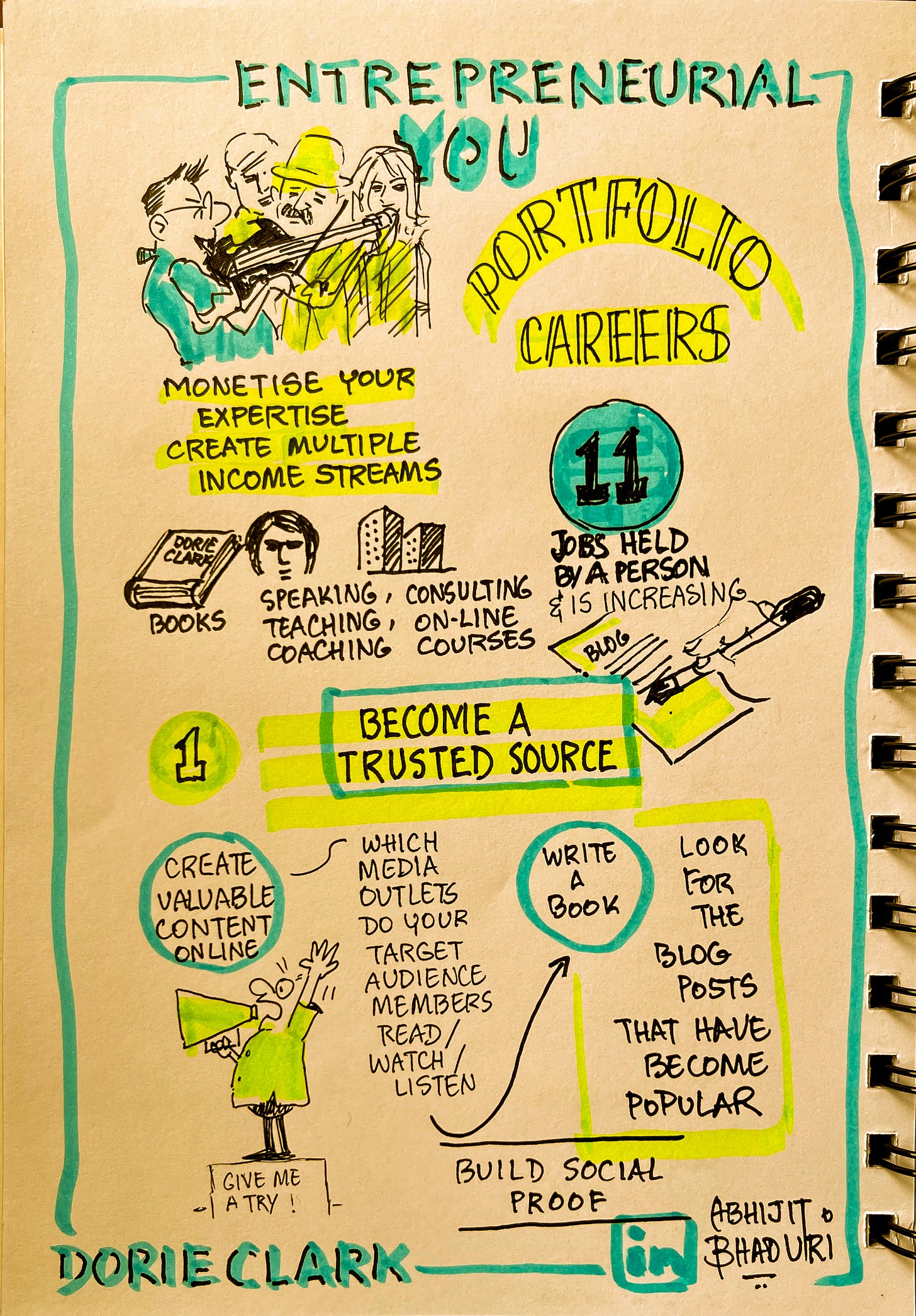


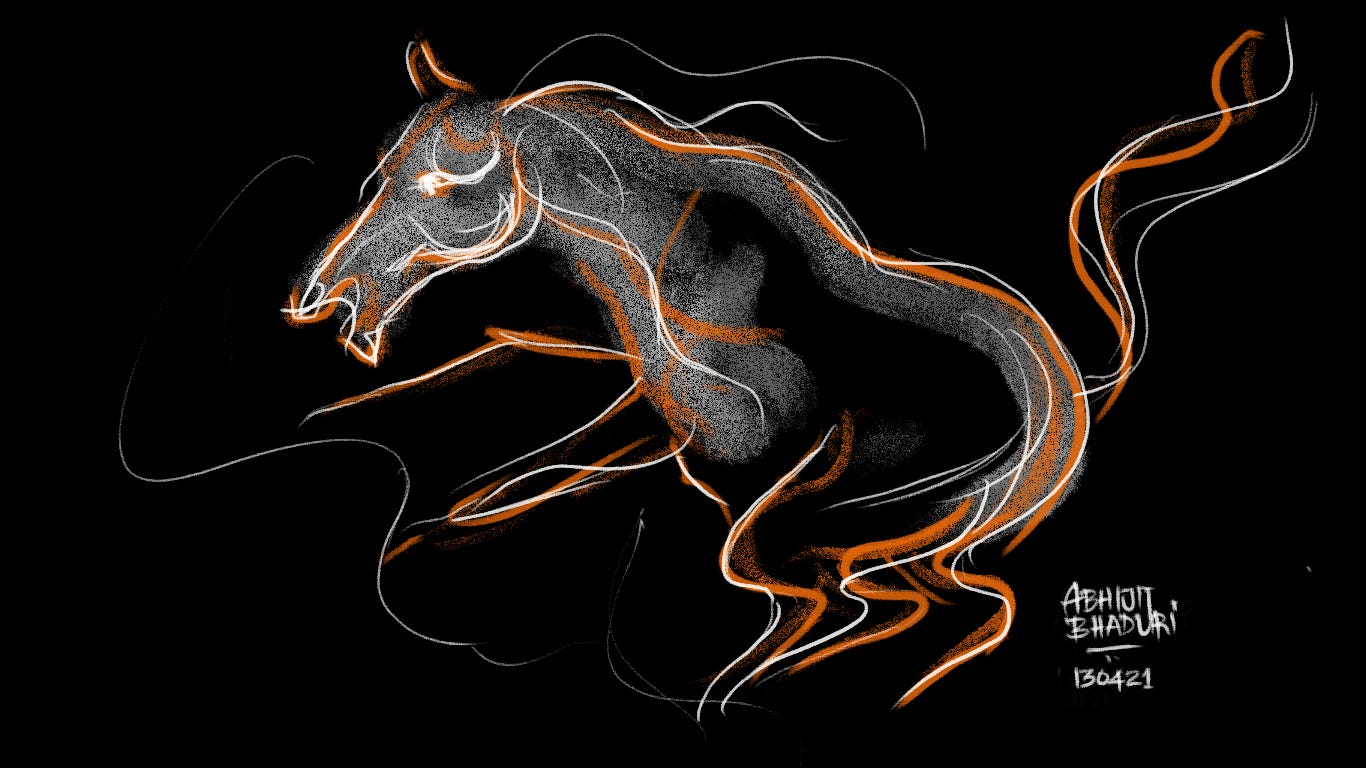
Considering this is the mango season and a topic in your newsletter, you should check out this beautiful Podcast on Mangoes and some sweet Hindustani classical. It's called Aam Naama.
https://open.spotify.com/show/1170C53fbw0AiSMsK38Yxj
Another lesser-known fact about mangoes: after 44 years of enjoying them as one of my favorite fruits, I became deathly allergic to them four years ago. It's a bittersweet moment whenever people talk about mangoes; I have had to learn to love the discussion vicariously. :)
Thank you for the education in rasas! I did not know that Indian culinary taxonomy. That makes me want to come back for another visit and taste everything I'm able to eat with a newly aware palate. :)
Cheers, my friend!